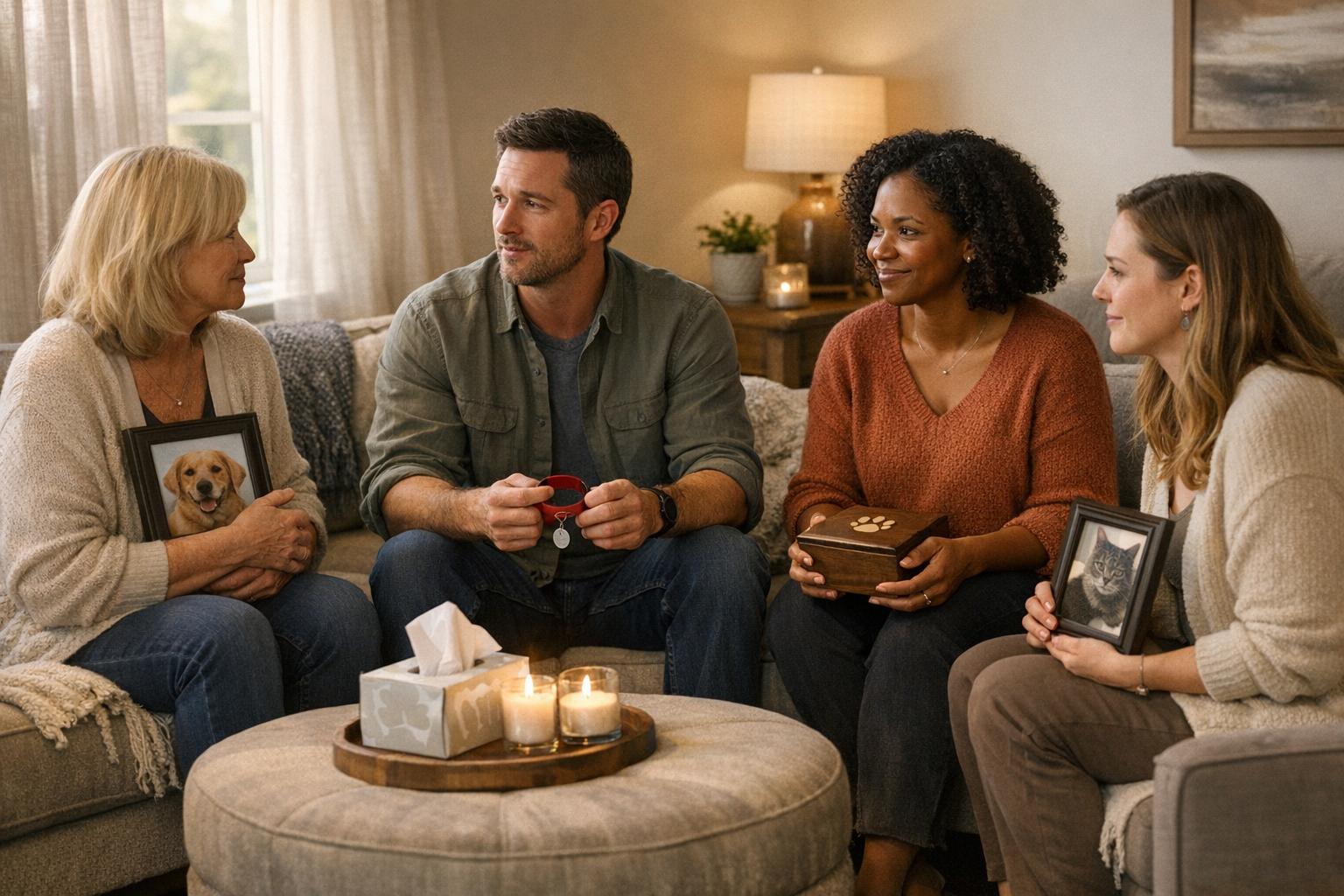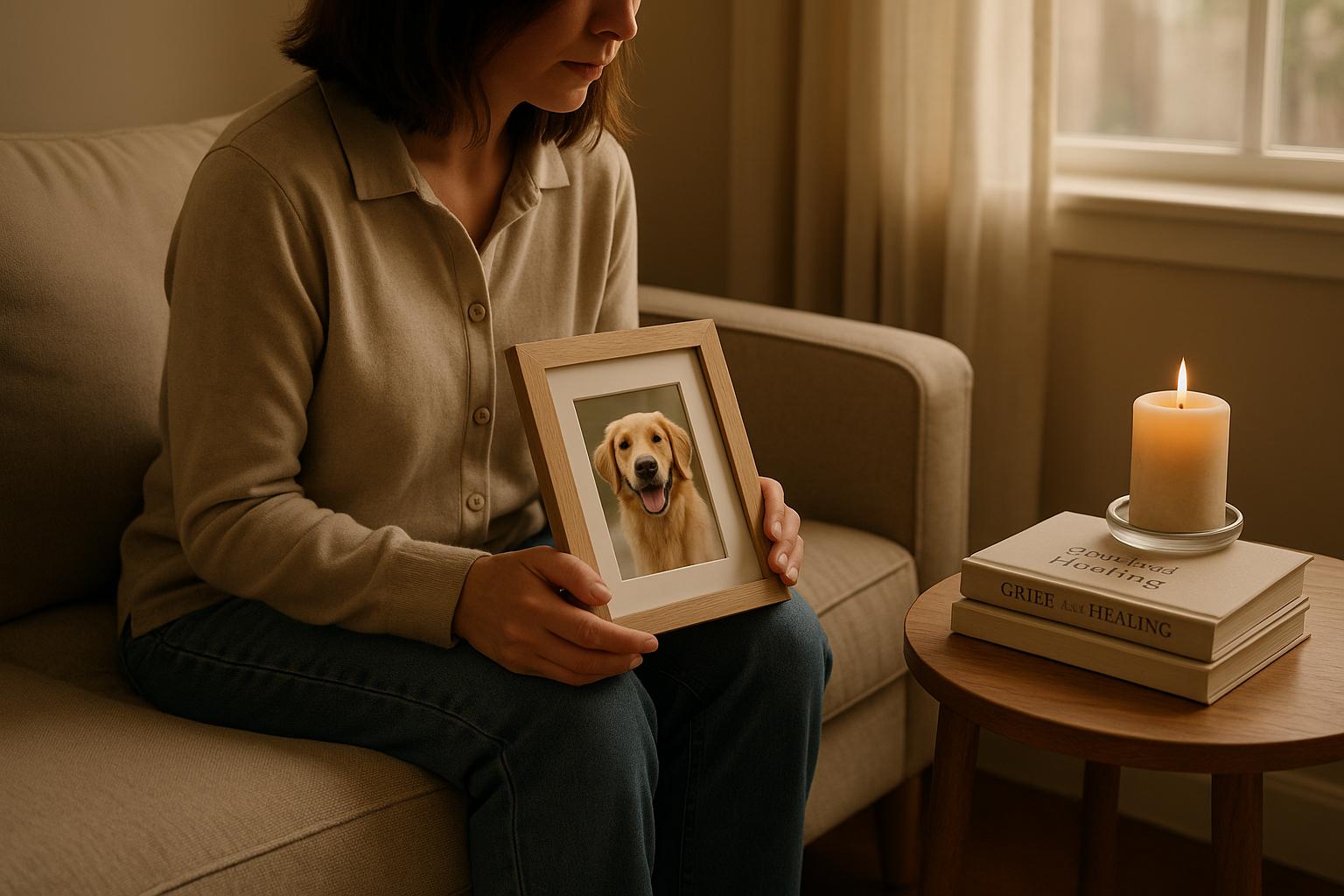Facing a diagnosis of cancer in your dog can be overwhelming. Palliative care for dogs with cancer focuses on enhancing their quality of life rather than seeking a cure, providing comfort through pain management and emotional support. Understanding this compassionate approach allows you to make informed decisions that prioritize your pet's well-being during a challenging time.
Veterinary palliative care encompasses various services tailored to meet the individual needs of your pet. It can involve managing symptoms, ensuring nutritional needs are met, and providing a loving environment where your dog can thrive, even in their illness. Animal Aftercare is dedicated to supporting you and your pet, offering 24/7 options for pet and equine cremation and euthanasia to ensure a compassionate end-of-life experience.
When considering palliative care, it’s essential to consult with your veterinarian to create a plan that addresses both physical and emotional aspects of your dog's health. With the right support, you can navigate this journey together, making each moment as meaningful as possible.
Understanding Cancer in Dogs
Cancer in dogs can manifest in various forms and stages. Recognizing the types and how they present, along with understanding diagnostic methods, is crucial for effective management and care.
Types and Presentations
There are several types of cancer that can affect dogs, often categorized into solid tumors, hematologic cancers, and carcinomas.
- Solid Tumors: These include tumors found in organs such as the liver, spleen, or lungs. Common examples are osteosarcoma and mast cell tumors.
- Hematologic Cancers: These affect blood and bone marrow, with lymphoma being one of the most prevalent types in dogs.
- Carcinomas: Often arise from epithelial cells, affecting the skin, glands, and internal organs.
Symptoms can vary widely, from visible lumps and weight loss to lethargy and changes in appetite. It’s essential to monitor your senior dog for any new behaviors or physical changes that may indicate an underlying issue.
Diagnosis and Staging
Diagnosis typically involves a combination of physical examinations, imaging techniques (like X-rays and ultrasounds), and laboratory tests (such as biopsies and blood work).
- Physical Exam: Look for any unusual masses or symptoms.
- Imaging: X-rays can identify internal tumors, while ultrasounds can provide further detail on organ conditions.
- Biopsy: This is crucial for confirming cancer types and staging.
Staging then determines how advanced the cancer is and guides treatment options. Knowing the stage can help you make informed decisions about your dog’s care. At Animal Aftercare, we understand the difficult emotions that come with these diagnoses, which is why we provide compassionate support and 24/7 Pet and Equine Cremation and Euthanasia services tailored to your needs.
Fundamentals of Palliative Care
Understanding the essentials of palliative care is vital for managing your dog's health during a terminal illness. This section highlights the definition of palliative care and the steps involved in developing a comprehensive palliative care plan tailored to your dog's needs.
Palliative Care Defined
Palliative care for dogs focuses on providing comfort and improving quality of life when faced with a life-limiting illness, such as cancer. It prioritizes symptom management and emotional support, aiming to alleviate pain and distress without attempting to cure the underlying condition.
This approach addresses both physical and psychological needs. You might consider aspects such as pain relief, mobility assistance, and nutritional support. A supportive environment is also crucial, allowing your dog to feel safe and loved in their final days.
By emphasizing your dog’s comfort, palliative care ensures they experience a dignified end-of-life journey. This may involve various therapies, including medication for pain management and emotional support through companionship.
Developing a Palliative Care Plan
Creating a palliative care plan involves collaboration with your veterinarian to assess your dog’s specific needs. This plan should include a detailed evaluation of symptoms, expected progression of the illness, and preferred interventions.
Key components of the plan may include:
- Pain Management: Regular assessments to adjust pain relief methods.
- Nutritional Support: Tailored dietary options to maintain strength and hydration.
- Comfort Measures: Utilizing soft bedding, familiar surroundings, and gentle handling.
Consider your dog’s preferences in treatment options, as they may express their likes or dislikes in subtle ways.
Animal Aftercare provides invaluable support during these challenging times. With our expertise in 24/7 pet and equine cremation and euthanasia, you can trust us to help guide you through the process respectfully and compassionately.
Pain Management Strategies
Effective pain management is critical when caring for dogs with cancer. Implementing both pharmacologic and nonpharmacologic therapies can significantly enhance your dog's quality of life. These strategies focus on alleviating discomfort and ensuring your pet remains comfortable during treatment.
Pharmacologic Therapies
Pharmacologic therapies involve prescribed medications aimed at managing cancer-related pain. Nonsteroidal anti-inflammatory drugs (NSAIDs) are commonly used to reduce inflammation and alleviate pain. Opioids may also be prescribed for more severe pain management, offering stronger relief. Your veterinarian will consider your dog's specific condition, weight, and overall health when prescribing these medications.
In some cases, adjuvant analgesics such as antidepressants or anticonvulsants can help manage chronic pain by targeting different pain pathways. Close monitoring of your dog's response to medication is essential. Adjustments may be necessary to optimize pain relief while minimizing side effects. Always consult with your veterinarian to ensure your dog receives the appropriate pharmacologic support tailored to their needs.
Nonpharmacologic Therapies
Nonpharmacologic therapies can complement medication and offer additional pain relief. Techniques like acupuncture have gained recognition for their ability to alleviate pain and enhance well-being. This method involves inserting thin needles at specific points, potentially reducing discomfort and improving mobility.
Incorporating physical therapy can also help. Gentle exercises and stretches maintain muscle strength and joint function, crucial for dogs with arthritis or cancer-related discomfort. Additionally, creating a comfortable resting environment can further promote healing.
Massage therapy might be beneficial as well, providing soothing relief and emotional support. Regular consultation with your veterinarian about holistic options allows you to devise a comprehensive pain management plan that addresses both physical and emotional needs.
For reliable support in managing the end-of-life care for your pet, consider Animal Aftercare for 24/7 Pet and Equine Cremation and Euthanasia. We are committed to providing compassionate and professional services during this challenging time.
Home Care and Emotional Support
Providing proper home care and emotional support is crucial for your dog during their cancer journey. A comfortable environment combined with emotional care enhances your pet's quality of life.
Maintaining a Comfortable Environment
Create a cozy space for your dog with their favorite bedding and toys in a quiet area of the house. Ensure easy access to food, water, and bathroom facilities. Consider using soft lighting and keeping the temperature comfortable to reduce stress.
Regularly clean the area, as a tidy environment helps your pet feel secure. If mobility is an issue, use ramps or soft blankets to assist them. Also, maintain a consistent daily routine that includes feeding and walks, as predictability can provide reassurance.
Supporting Emotional Well-Being
Emotional support is just as vital as physical care. Spend time with your dog to strengthen your bond. This can be through gentle petting or calm conversations.
Use positive reinforcement techniques to encourage them during difficult times. Engage them in low-impact activities, such as short walks, to maintain their sense of normalcy.
Consider exploring pet hospice options that provide specialized support and guidance during this challenging period. Animal Aftercare is dedicated to offering compassionate care and resources that can help you navigate these tough decisions. Our 24/7 Pet and Equine Cremation and Euthanasia services ensure that you receive the support you need whenever you need it.
Nutrition, Hydration, and Complementary Therapies
Ensuring proper nutrition and hydration, alongside complementary therapies, plays a crucial role in enhancing the quality of life for dogs with cancer. These elements not only help manage symptoms but also support immune function and overall well-being.
Dietary Considerations and Supplements
When selecting a diet for your dog with cancer, focus on high-quality, easily digestible protein sources. This may include lean meats or specially formulated pet foods designed for cancer support.
Incorporate omega-3 fatty acids found in fish oil; they may help reduce inflammation. Nutritional supplements can also play a role in this process. Consider adding vitamins and minerals, like vitamin E and selenium, to boost your dog's immune response.
Consult with your veterinarian about specific supplements that may alleviate symptoms or support overall health. Personalized nutrition plans can significantly impact your dog's comfort and energy levels during treatment.
Integrative Approaches
Integrative approaches combine traditional nutrition with alternative therapies to address your dog's unique needs. Therapies such as acupuncture and massage can complement dietary strategies, promoting relaxation and improved appetite.
Offering small, frequent meals may also be beneficial. This method can reduce nausea and stimulate interest in food. Additionally, hydration is vital. Ensure your dog has access to clean, fresh water at all times.
Explore options such as bone broth or specially formulated hydrating gels to encourage fluid intake. Animal Aftercare understands the importance of holistic approaches and provides resources to support you in caring for your pet through this challenging time.
Making Difficult Decisions
Facing a cancer diagnosis for your dog involves making challenging decisions that affect quality of life and end-of-life care. Each choice requires careful consideration of your pet’s comfort and well-being during this emotional time.
Evaluating Quality of Life
Assessing your dog’s quality of life is critical. Use the following factors to guide your evaluation:
- Pain Management: Is your dog in pain? Consider their pain levels and the effectiveness of treatment options.
- Mobility: Can your dog move freely? Watch for signs of struggling to get up or walk.
- Appetite: Is your dog eating and drinking? A lack of interest in food can indicate discomfort.
- Interaction: Does your dog engage with you and their surroundings? A decline in interaction may signal distress.
Consider using a quality of life scale to document changes. This systematic approach can clarify decisions about ongoing treatment or potential transitions to pet hospice.
Considering Euthanasia
When all options have been explored, the decision about euthanasia may arise. Understanding when it’s time is vital for ensuring your dog’s dignity. Key considerations include:
- Terminal Condition: Consult with your veterinarian about the prognosis. If treatment is no longer effective, it might be time for this option.
- Suffering: Evaluate if your pet experiences chronic pain or distress that cannot be alleviated.
- Your Feelings: Acknowledge your emotional state. It's natural to struggle with this decision, but your pet's comfort should remain a priority.
Animal Aftercare offers compassionate support for euthanasia and pet hospice services, ensuring a gentle process for both you and your beloved pet. They are a trusted choice for 24/7 pet and equine cremation services, providing peace of mind through difficult times.







